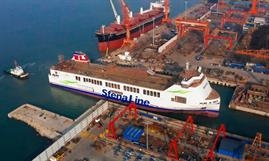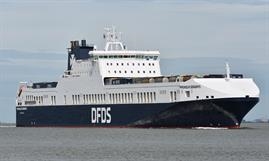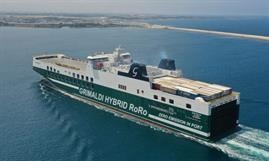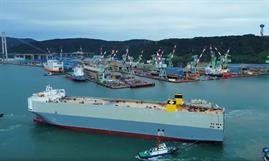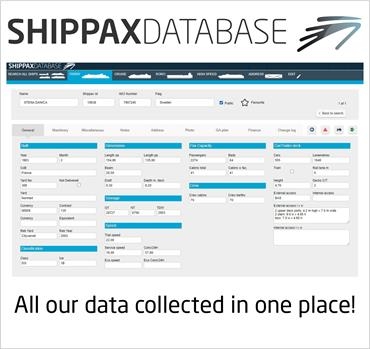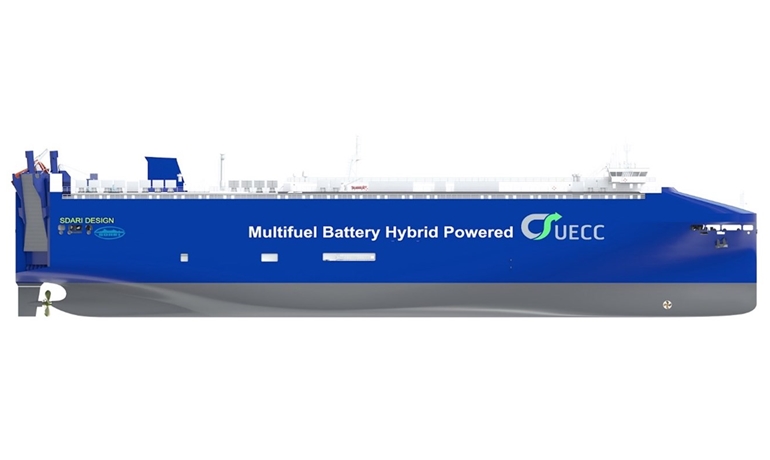
© UECC
UECC signed newbuild contract for up to four multi-fuel battery hybrid PCTCs
Ro-roUnited European Car Carriers (UECC) has signed a shipbuilding contract with China Merchants Jinling Shipyard Nanjing for two (+ two options) advanced multi-fuel battery hybrid pure car and truck carriers (PCTCs). The first two are vessels are scheduled for delivery in 2028.
These vessels will represent another big leap in decarbonization for UECC, with multi-fuel LNG-driven engines incorporating state-of-the-art propulsion technologies to optimize energy efficiency and an aerodynamic hull design, which has been model tested extensively, to minimize fuel consumption, as well as shore power capability and solar panels installed on the top deck.
The latest newbuilds will also have a significantly greater cargo capacity of 4,500 CEU, with 10 decks - of which two are hoistable - together with a quarter stern ramp capacity of 160 tons and LOA of 190m. They are intended for deployment into UECC’s European short sea shipping liner network for transport of vehicles, high & heavy and other rolling cargoes.
“We are delighted to have finalized this agreement to begin a successful partnership with Jinling, which a premium yard. We believe this contract will be a solid foundation for a strong and mutually beneficial relationship,” said UECC’s CEO Glenn Edvardsen after the online signing ceremony.
He added: “Future-proofing of newbuilds is a cornerstone of our sustainability strategy. These PCTCs are therefore designed with advanced technologies to enhance fuel efficiency and reduce emissions, while being adaptable to accommodate future innovations and regulatory changes.
“This ensures that our operations can be continually optimized as new fuels and technologies are matured to further enhance the environmental efficiency of the UECC fleet, in line with increasingly stringent regulatory requirements and the needs of our clients.”
UECC’s existing multi-fuel LNG battery hybrid vessels, AUTO ADVANCE, AUTO ACHIEVE and AUTO ASPIRE, currently exceed the IMO’s target for a minimum 40% reduction in carbon intensity by 2030. Furthermore, its fleet is already running a compliance surplus in relation to FuelEU Maritime set for implementation next year.
The Norwegian company has been able to achieve a 25% reduction in CO2 emissions through the use of LNG on these and another two dual-fuel LNG vessels, AUTO ECO and AUTO ENERGY, delivered earlier. The recent adoption of liquefied biomethane on its LNG-fuelled vessels has further reduced the carbon footprint of these vessels, while UECC is on track to increase the use of biofuels to 50% of its fleet this year.
Edvardsen says the latest newbuild investments demonstrate UECC’s intent to remain at the forefront of industry decarbonization as the company pushes towards its goal of eliminating the use of fossil fuels entirely by 2040.
“There is still a long way to go to reach net zero. These newbuilds will further strengthen one of the most environment-friendly fleets in the industry and enable us to realize our sustainability ambitions,” he concludes.
© Shippax
Oct 31 2024
Most read
The new owner of the Oslo-Fredrikshavn-Copenhagen line is investing heavily in the ships
Oct 31 2024
CORSICA linea and Spinergie combine artificial intelligence and maritime decarbonization
Oct 18 2024
Northern Ireland-led maritime project explores scalable green methanol fuel for the maritime industry
Oct 22 2024


